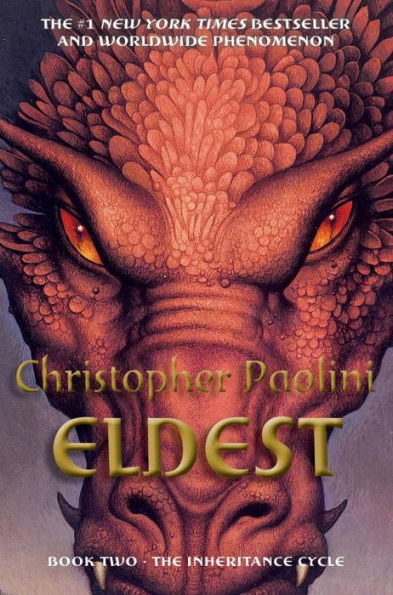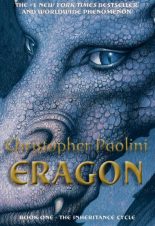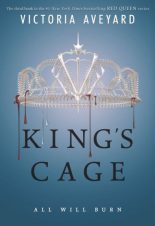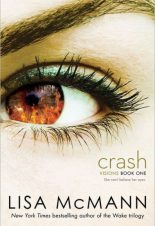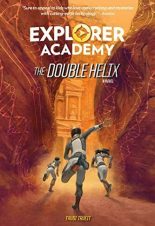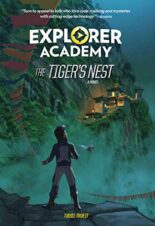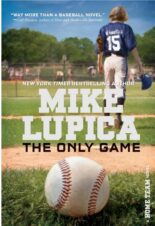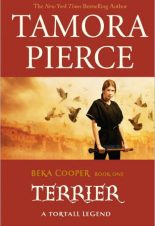Eldest
Inheritance Cycle Series #2
by Christopher Paolini
AR Test
12+
Score
7.0
704
Eragon has accepted the responsibility that comes with being a Rider. As the only one who can stop the evil King Galbatorix, Eragon travels to Ellesmera to finish his training among the elves. He studies fighting, magic, and history. He grows stronger, but also weaker as the Shade’s dark magic continues to course through his veins. As its evil festers, Eragon begins to wonder if Saphira was wrong to choose him. For if he fails, all hope will be lost.
The second installment in the Eragon series, Eldest could have been cut in half and not lost anything necessary to the story. Eragon’s journey to the elves dragged on too long, as did his training. A good chunk of the book is told from the point of view of Eragon’s cousin, but his personality is flat and unengaging. There were, however, very interesting moments during Eragon’s time with the elves and the book ended with plenty of action. As with the first novel, this story has a lot of gory violence that might be too frightening for some readers.
Sexual Content
- Eragon and his teacher wash in a stream after working out. “Going to the stream by the house, they quickly disrobed. Eragon surreptitiously watched the elf, curious as to what he looked like without his clothes…No hair grew upon his chest or legs, not even around his groin.”
- During a festival, “the two elves raised their hands to the brooches at their throats, unclasped them, and allowed their white robes to fall away. Though they wore no garments, the women were clad in an iridescent tattoo of a dragon…Slowly at first, but with gathering speed, [they] began to dance, marking time with the stamp of their feet on the dirt and undulating so that it was not they who seemed to move but the dragon upon them.”
- A woman “even went so far as to insinuate that one of his grandparents had mated with an Urgal.”
Violence
- Eragon remembers a great battle he fought in. “Beyond that, he no longer believed that life possessed inherent meaning—not after seeing men torn apart by the Kull…and the ground a bed of thrashing limbs and the dirt so wet with blood it soaked through the soles of his boots. If any honor existed in war, he concluded, it was in fighting to protect others from harm. He bent and plucked a tooth, a molar, from the dirt.”
- Eragon’s cousin, Roran, gets in many fights, lies, cheats, and kills many people with his friends. Some are in self-defense, some are initiated by him. “Sloan howled like an enraged beast, threw his cleaver, and split one of the men’s helms, crushing his skull…Sloan yanked him closer and gored him through the eye with a carving knife from his belt…almost prancing with a terrible, bloody glee.”
- After a fight, “The boy, Nolfavrell, was kneeling by the body of a soldier, methodically stabbing him in the chest as tears slid down his chin.”
- Ayra tells the story of a woman who murdered the man who spurned her. “She found him with the woman and, in her fury, she stabbed him to death.”
- Eragon learns how to kill with magic. “All it takes is for a single artery in the brain to be pinched off, or for certain nerves to be severed. With the right spell, you could obliterate an army.”
- When the braying of a donkey almost reveals his hiding place, “Without hesitation, Roran dropped to one knee, fit arrow to string, and shot the ass between the ribs.”
- When a man finds out Roran is a fugitive, he “jabbed forward with his spear, catching the white-haired soldier in the throat. Scarlet blood fountained. Releasing the spear, Roran drew his hammer and twisted round as he blocked the second soldier’s poleax with his shield. Swinging his hammer up and around, Roran crushed the man’s helm.”
- Before a battle, a woman poisons the soldiers on the other side. “Not a very honorable way to fight, I suppose, but I’d rather do this than be killed.”
- There is a great and lengthy battle. “Eragon could not tell from whose mouth emanated the ravenous jet of flame that consumed a dozen soldiers, cooking them in their mail, nor whose arm it was that brought Zar’roc down in an arc, cleaving a soldier’s helm in half.”
Drugs and Alcohol
- Wine/mead is consumed at many meals, by Eragon as well as Saphira.
- Eragon and Saphira get drunk. “They abandoned their food and filled their stone tankards with beer and mead…Even Saphira took a sip of mead, and finding that she liked it, the dwarves rolled out a whole barrel for her.” They both wake up hungover the next morning.
- A trapper says, “After a few steins of ale—to lubricate my speaking, you understand…”
- During a feast, Eragon “drank the cup’s clear liqueur and gasped as it blazed down his throat. It tasted like mulled cider mixed with mead.”
- Orik gets drunk on Faelnirv, “A mosht wonderful, ticklish potion. The besht and greatest of the elves’ tricksty inventions.”
- After a battle Eragon, “took a small sip of the liqueur to revitalize himself and gasped as it raced down his throat, making his nerves tingle with cold fire.”
Language
- Bastard is used a few times. When Roran sees the men who killed his father, he says “That’s…they’re the bastards…”
- Ass is used to describe a donkey.
Supernatural
- Elves, dwarves, dragons, Urgals, and many other creatures live in Eragon’s world.
- Eragon has a premonition about a battle. When he asks his friend about premonitions, she tells him, “The elf Maerzadi had a premonition that he would accidentally kill his son in battle. Rather than live to see it happen, he committed suicide, saving his son, and at the same time proving that the future isn’t set. Short of killing yourself, however, you can do little to change your destiny.”
- Eragon tries to bless a child in the ancient language, but accidentally curses her. His teacher tells him, “Instead of protecting this child from the vagaries of fate, you condemned her to be a sacrifice for others, to absorb their misery and suffering so that they might live in peace.”
Spiritual Content
- An elf argues with a dwarf over their religion, since “elves do not hold with ‘muttering into the air for help.’ “
- When Eragon learns to hear the thoughts of living creatures, he finds he can no longer stomach the idea of eating meat. “Gripped by revulsion, Eragon thrust the meat away, as appalled by the fact that he had killed the rabbits as if he had murdered two people. His stomach churned and threatened to make him purge himself.”
- Eragon’s teacher tells him that his and Saphira’s “souls, your identities—call it what you will—have been welded on a primal level…Do you believe that a person’s soul is separate from his body?” Eragon replies, “I don’t know.”
- When Eragon says an animal isn’t a person his teacher says, “‘Do you truly believe that any of us are so different from a woodrat? That we are gifted with a miraculous quality that other creatures do not enjoy and that somehow preserves our being after death?’ ‘No,’ muttered Eragon.”
- The elves, “do not worship at all…if gods exist, have they been good custodians of Alagaesia? Death, sickness, poverty, tyranny, and countless other miseries stalk the land. If this is the handiwork of divine beings, then they are to be rebelled against and overthrown, not given obeisance, obedience, and reverence.”
- Murtagh is under a spell. Eragon asks Murtagh for permission to kill him, as it is the only way to stop him. “‘It would free you from Galbatorix’s control. And it would save the lives of hundreds, if not thousands, of people. Isn’t that a noble enough cause to sacrifice yourself for?’ Murtagh shook his head. ‘Maybe for you, but life is still too sweet for me to part with it so easily. No stranger’s life is more important than Thorn’s or my own.’ ”
by Morgan Lynn
Other books by Christopher Paolini
Latest Reviews
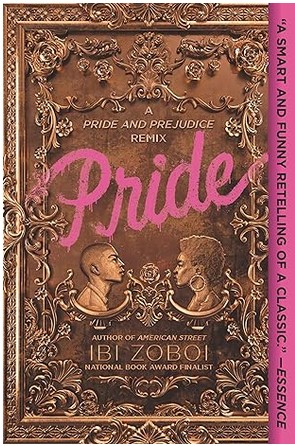
Pride: A Pride & Prejudice Remix
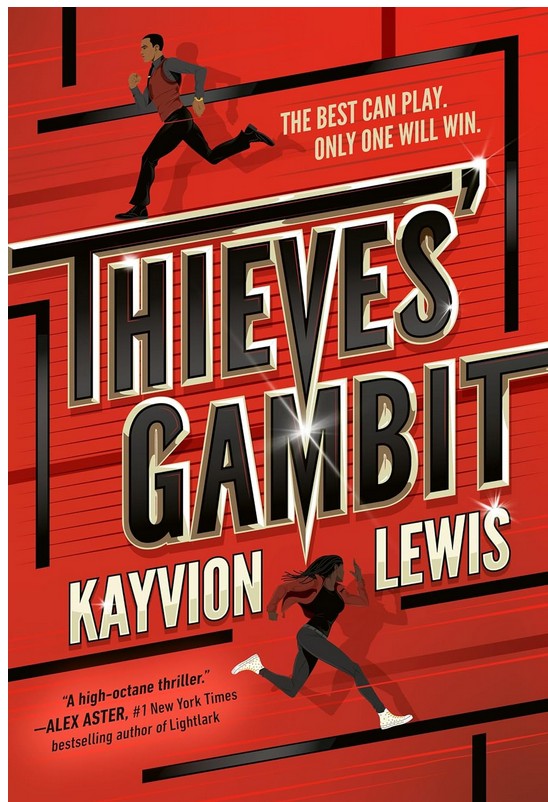
Thieves’ Gambit #1
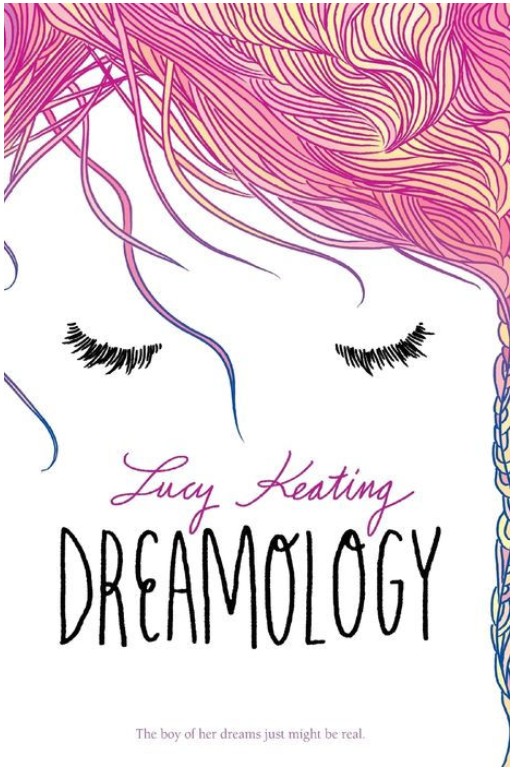
Dreamology
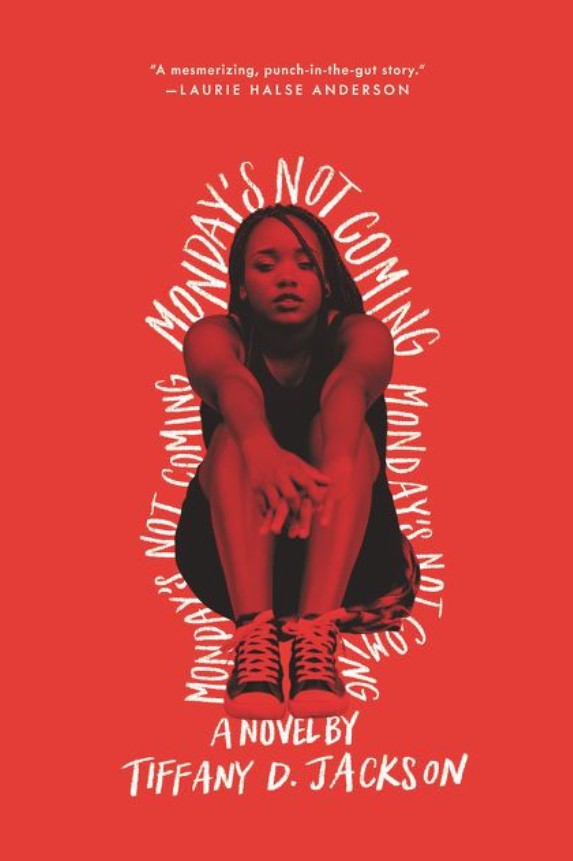
Monday’s Not Coming
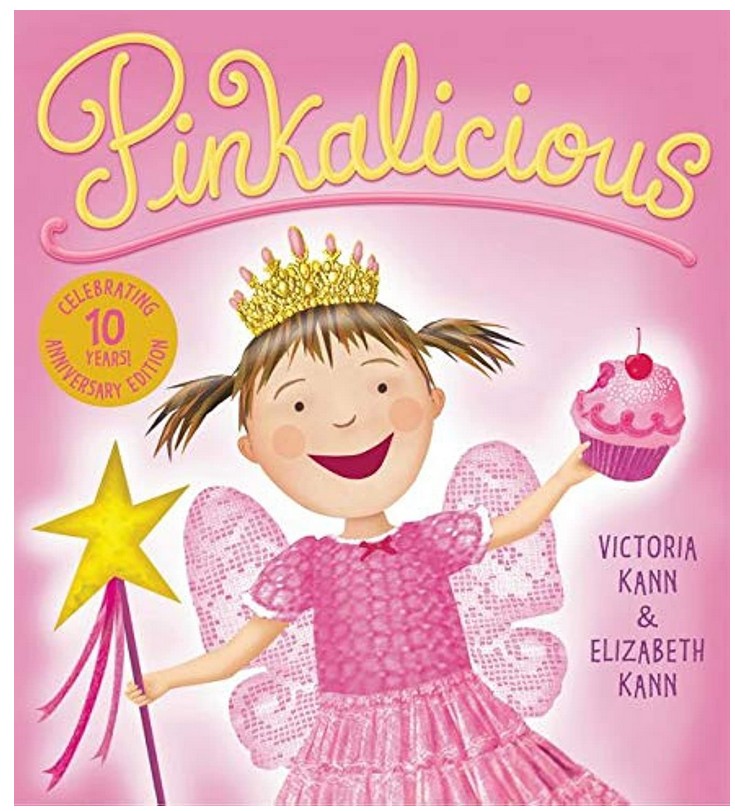
Pinkalicious

Driven

Goodbye Days

Blood of Troy

Will’s Race for Home

